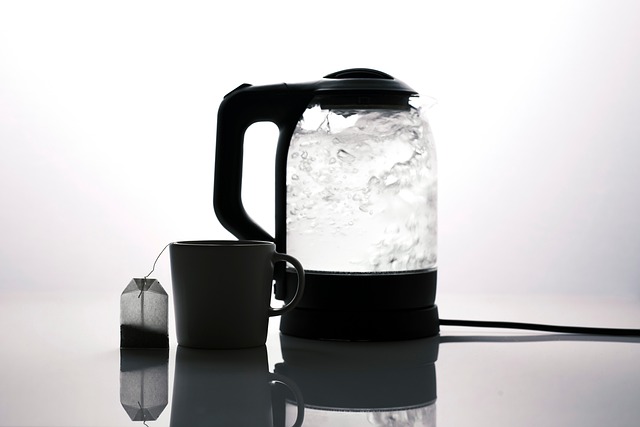Water heaters are essential home appliances, but they can develop issues over time, requiring costly repairs or replacement. Common signs of a faulty heater include irregular hot water supply, frequent cold water interruptions, quickly depleting hot water, persistent leakages, unusual internal noises, and age (typically 8-12 years). These issues can lead to temperature control problems, pressure buildup, corrosion, moisture, inconsistent hot water flow, and increased energy bills. If your water heater exhibits these signs, it may be time to consider replacing it for improved efficiency and lower utility costs.
Are you tired of constantly fixing your old water heater? Or perhaps you’re wondering if it’s time for an upgrade? This guide will help you navigate the decision between repair and replacement. We’ll explore common water heater issues, from temperature control problems to leaking and strange noises. We’ll also delve into factors like age, cost comparisons, and energy efficiency to determine when a new heater is the best (and most cost-effective) solution.
- Assessing Common Water Heater Issues
- – Understanding frequent problems like temperature control issues, pressure buildup, and leaking
- – When odd noises, inconsistent hot water flow, and energy bills spikes signal a problem
Assessing Common Water Heater Issues

Water heaters are an essential part of our daily routines, and recognizing when yours needs attention is crucial. Many common issues can serve as clear signs you need a new water heater. One of the most noticeable indicators is irregular hot water supply—if you find that your showers are frequently cut short due to cold water or that hot water only lasts for a few minutes before switching to cold, it might be time for an upgrade.
Another significant red flag is persistent leakages. Even small drips can lead to substantial water waste and potential damage to your home over time. Moreover, if your water heater is making unusual noises, such as banging or rumbling sounds, it could point to internal problems that may require professional attention. Age is also a factor; most water heaters last between 8 to 12 years, so if yours is nearing or has exceeded this range, considering replacement might be prudent to avoid potential failures and ensure consistent access to hot water.
– Understanding frequent problems like temperature control issues, pressure buildup, and leaking

Water heaters are essential home appliances, but they can develop issues over time, leading to costly repairs or the need for replacement. Recognizing the signs that indicate a new water heater is necessary is crucial for homeowners. Some common problems include persistent temperature control issues, such as water that’s either too hot or not hot enough. This could be due to faulty heating elements or a malfunctioning thermostat.
Another significant red flag is pressure buildup within the tank, often resulting in loud rumbling sounds and even leaks. Over time, the tank can corrode or develop cracks, leading to water loss and potential damage to your home. Keep an eye out for any signs of moisture or discoloration around the heater, which may indicate a leak. Additionally, if your water heater is old and has been consistently requiring repairs, it might be more economical to invest in a new one rather than continue with temporary fixes.
– When odd noises, inconsistent hot water flow, and energy bills spikes signal a problem

If your water heater is making unusual noises like banging, squealing, or grinding, it could be a sign that internal components are worn out or damaged. These sounds often indicate issues with the heating elements, temperature control valve, or other moving parts. Inconsistent hot water flow—when the water only heats up partially or runs out quickly—is another red flag. It might suggest problems with the dip tube, which carries cold water to the heater’s bottom, or the heating element itself.
Spikes in your energy bills could also point towards a malfunctioning water heater. If your unit is not heating water efficiently, it will consume more energy, resulting in higher utility costs. Keep an eye on these signs—odd noises, inconsistent hot water flow, and sudden increases in energy bills—as they are strong indicators that it might be time to consider replacing your water heater rather than repairing it.
When it comes to your water heater, recognizing the signs you need a new one is crucial. If you’ve encountered persistent issues like temperature regulation problems, pressure buildup, or leaks, and these are accompanied by unusual noises, inconsistent hot water flow, or rising energy bills, it might be time for a replacement. Regular maintenance can only do so much; eventually, even the most well-cared-for water heater reaches its limit. By understanding these signs, you can proactively address your heating needs and avoid unexpected breakdowns, ensuring consistent access to hot water without hassle.
